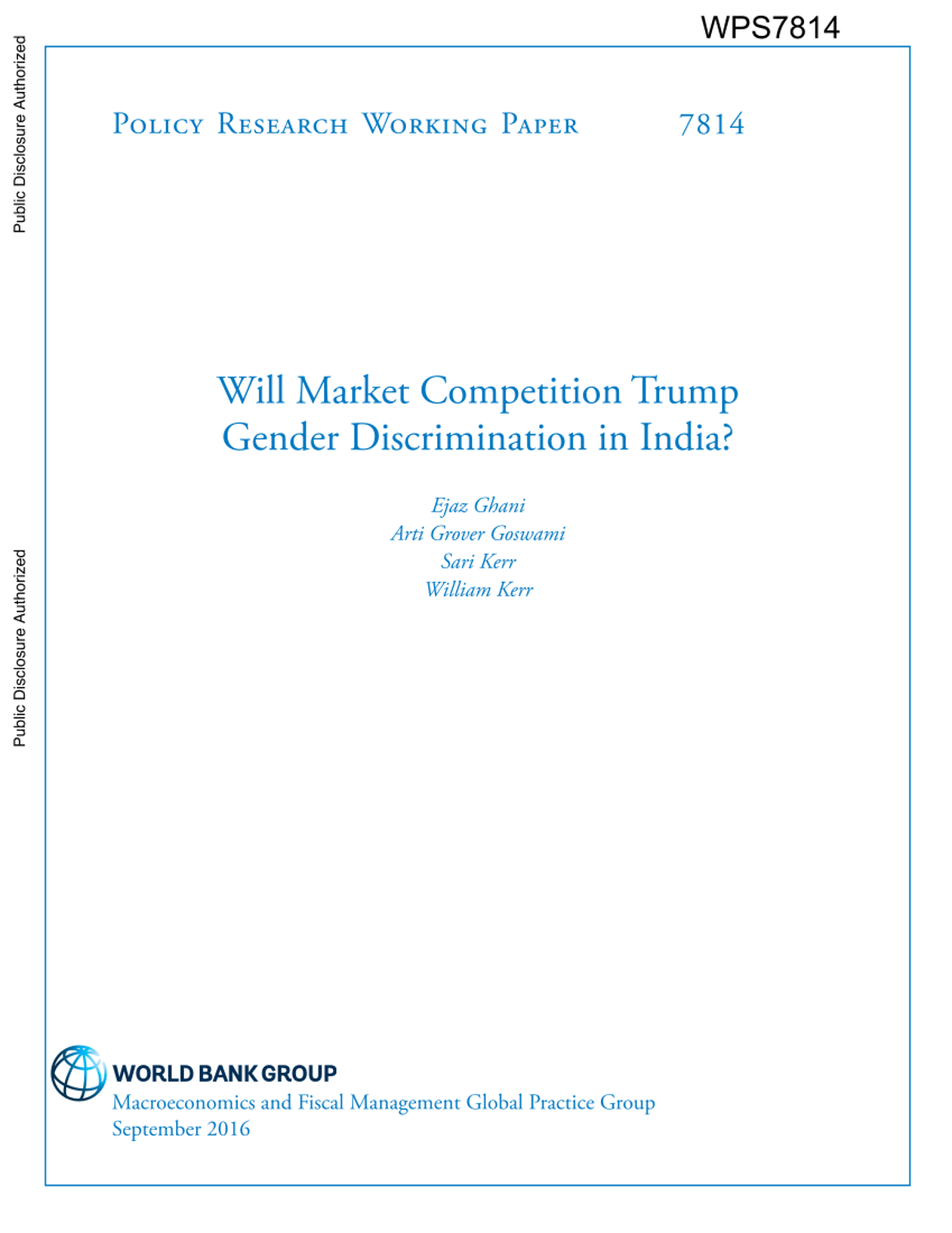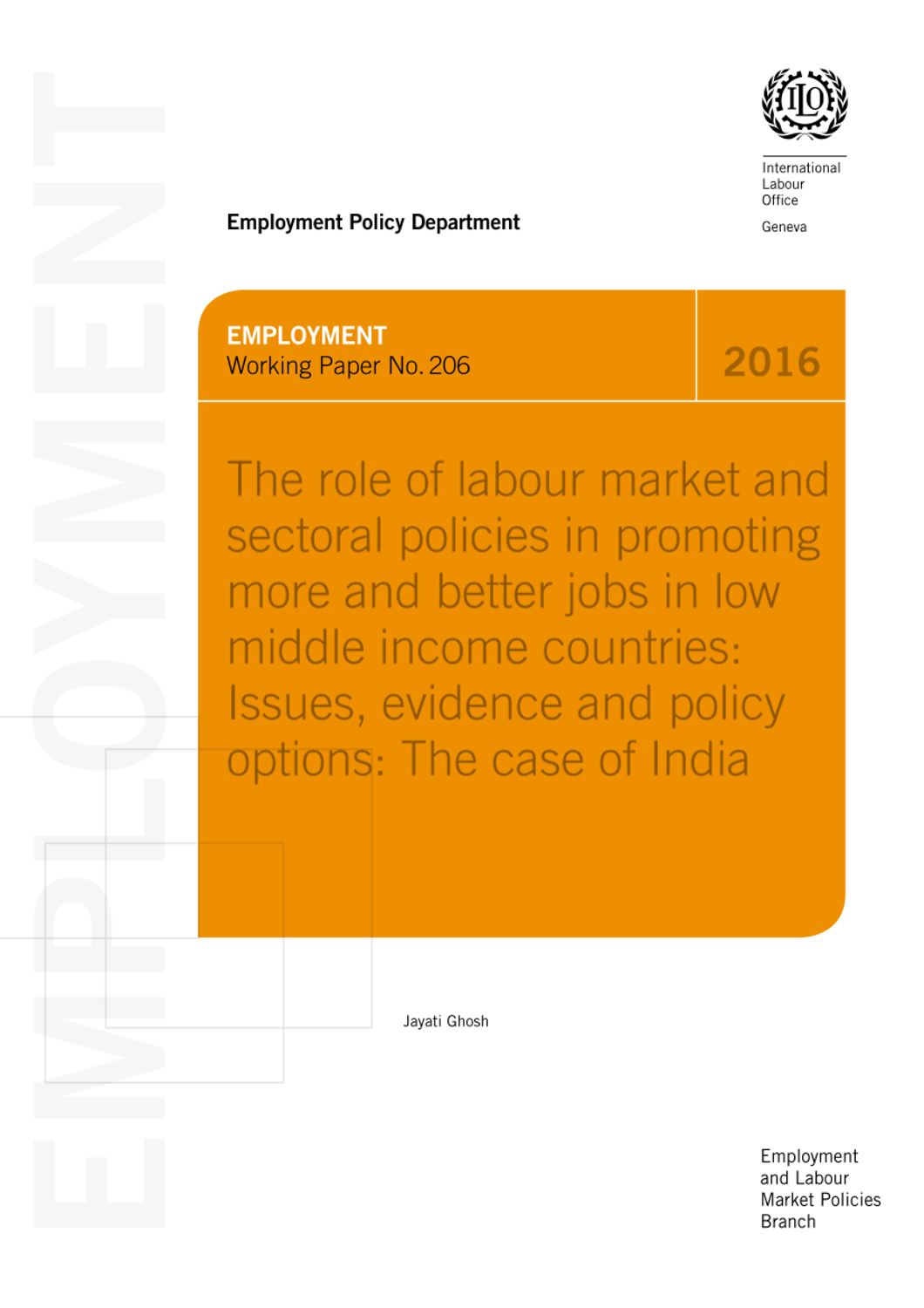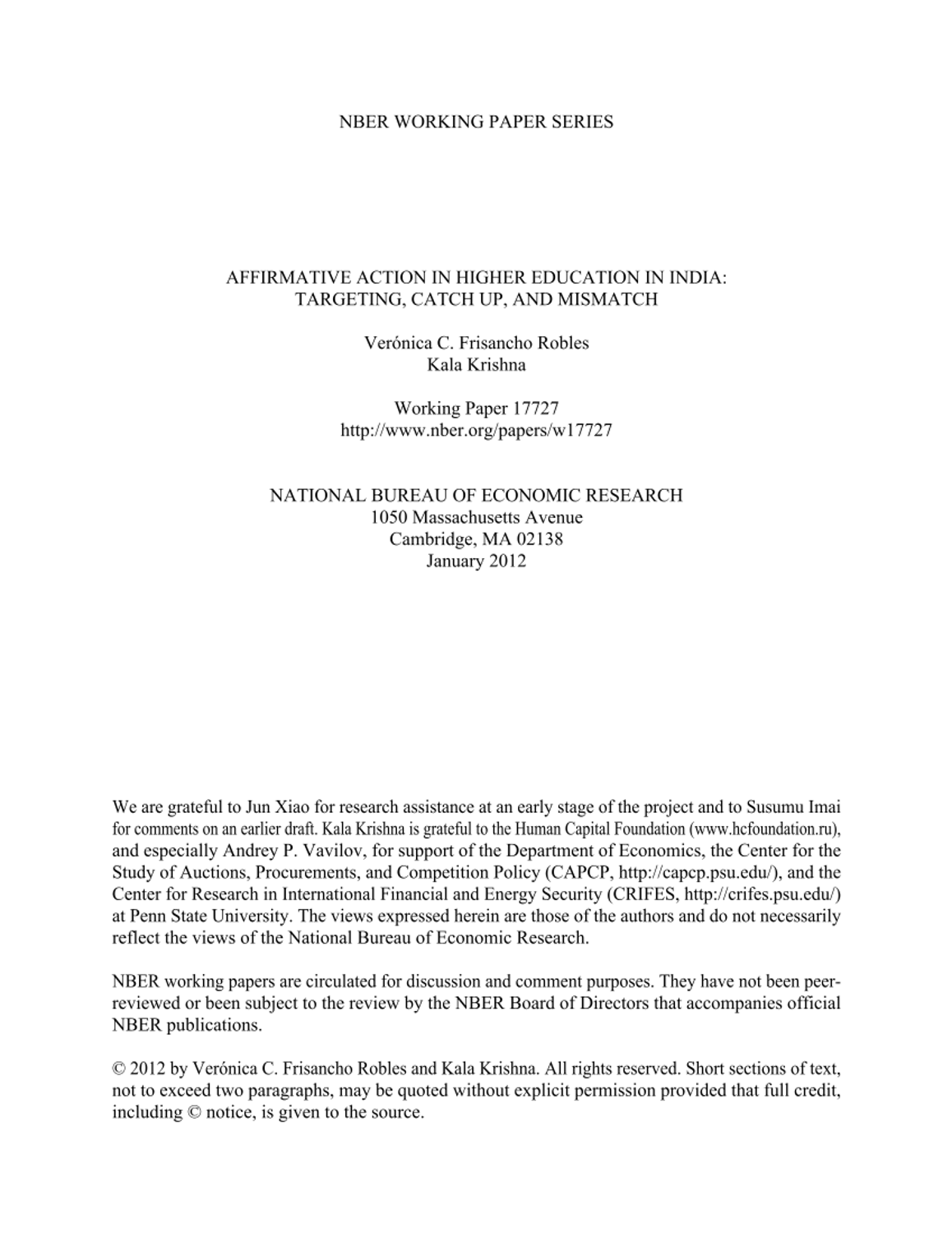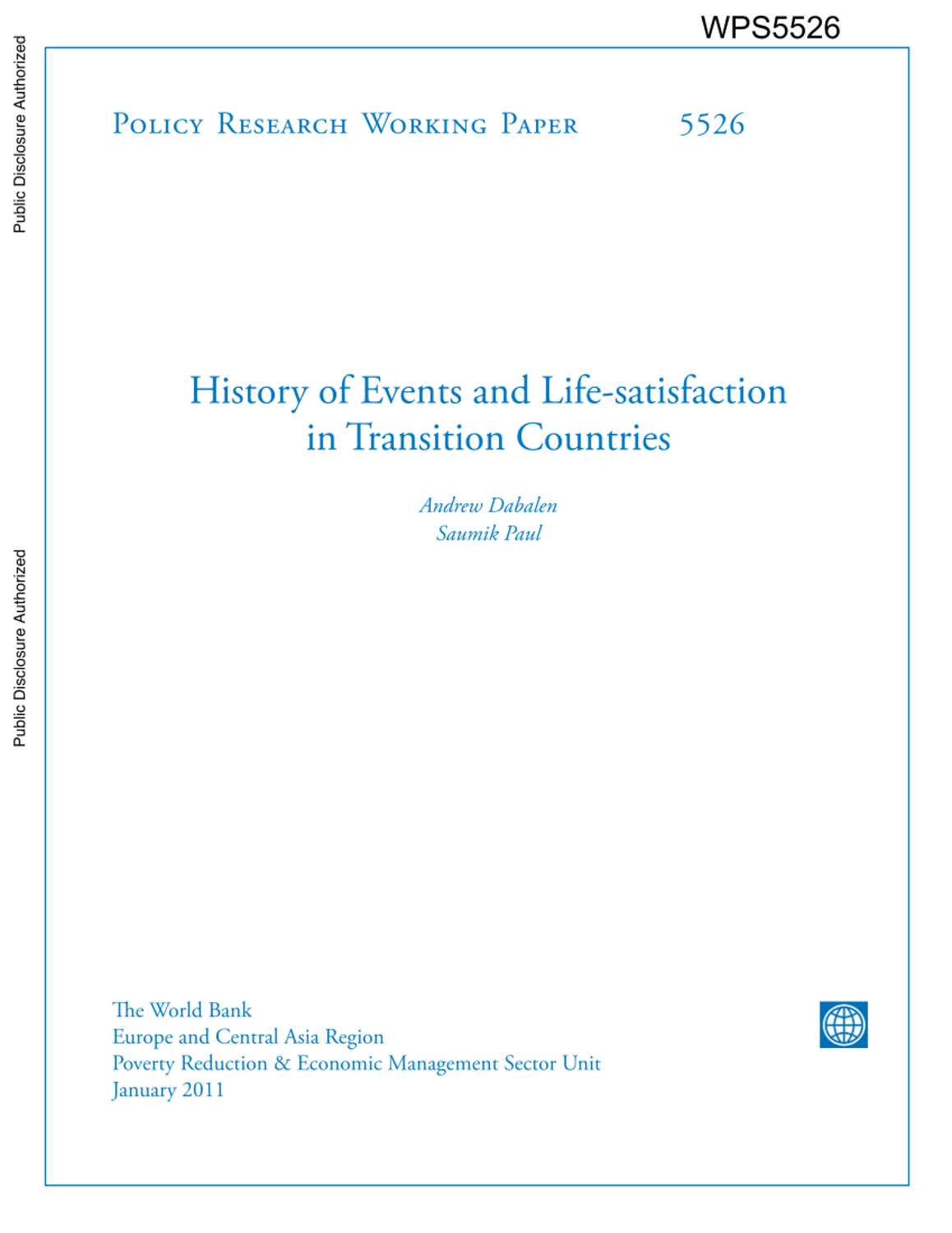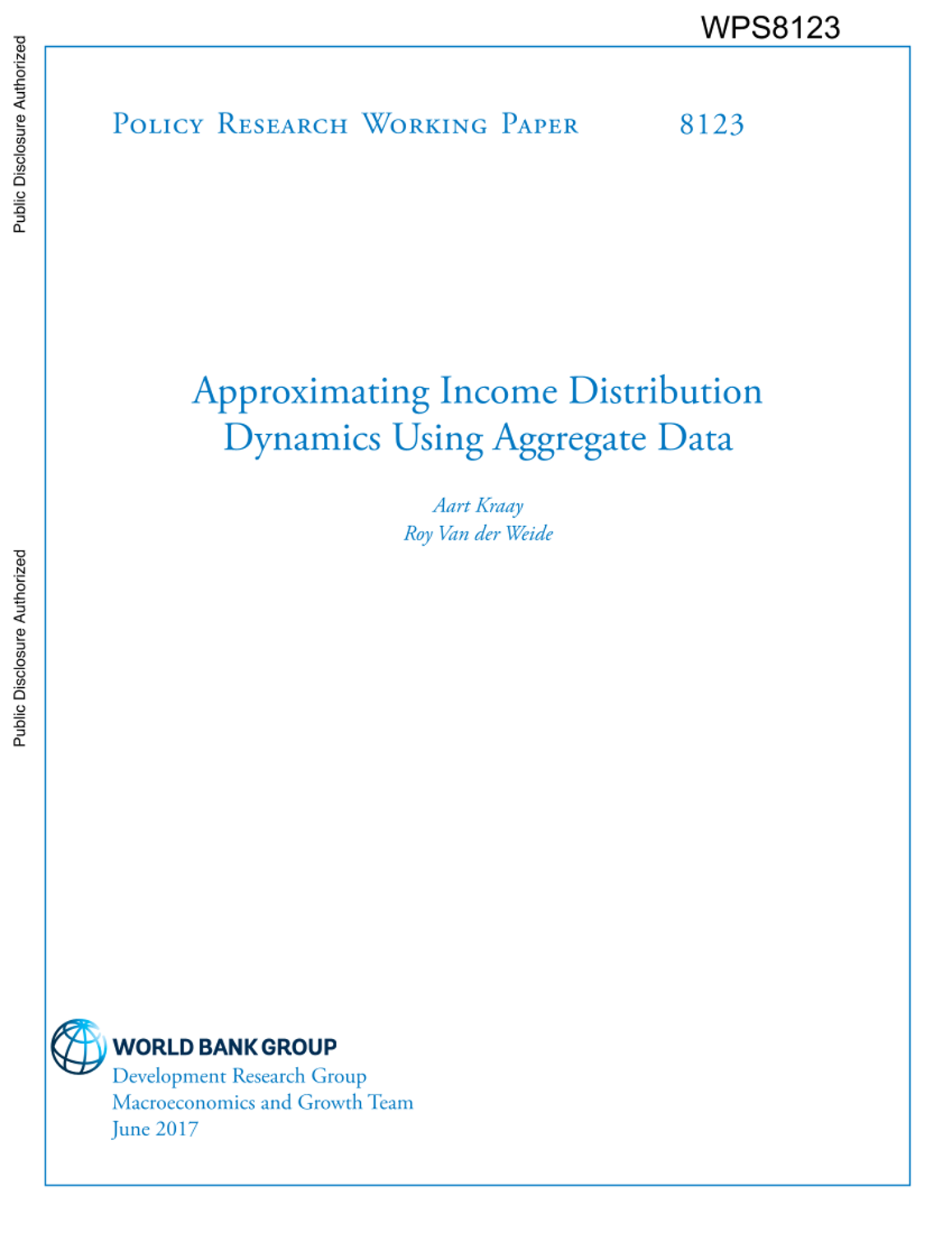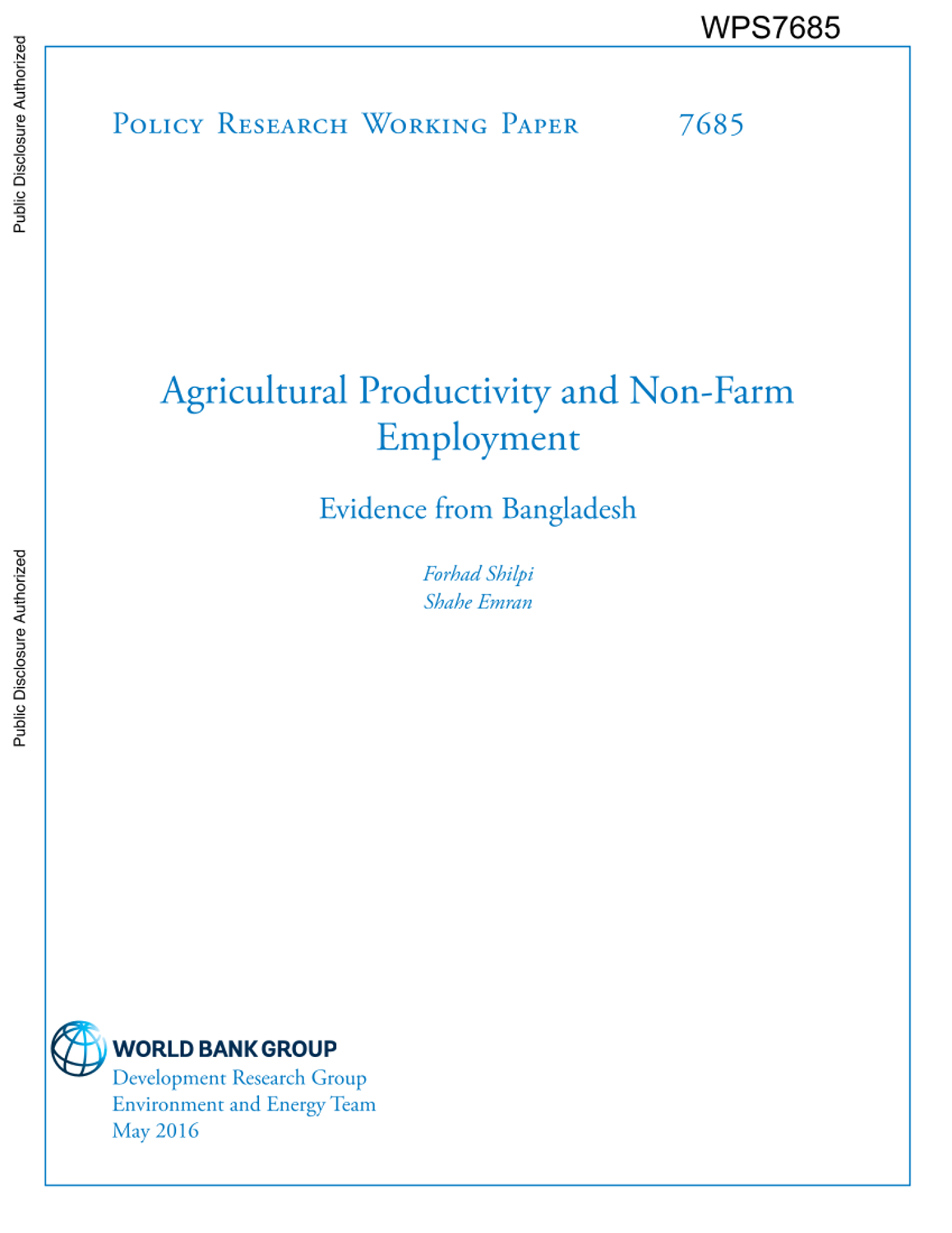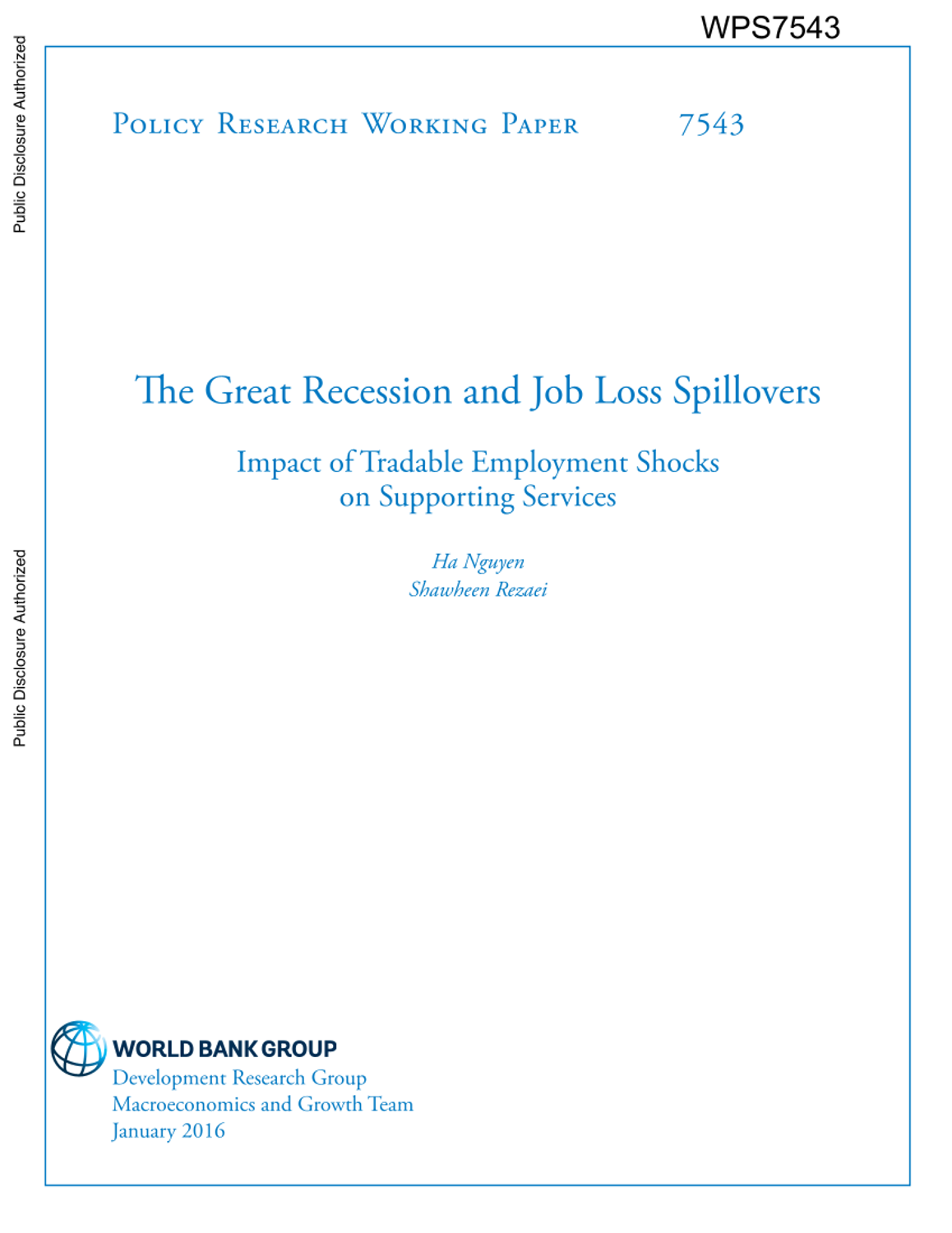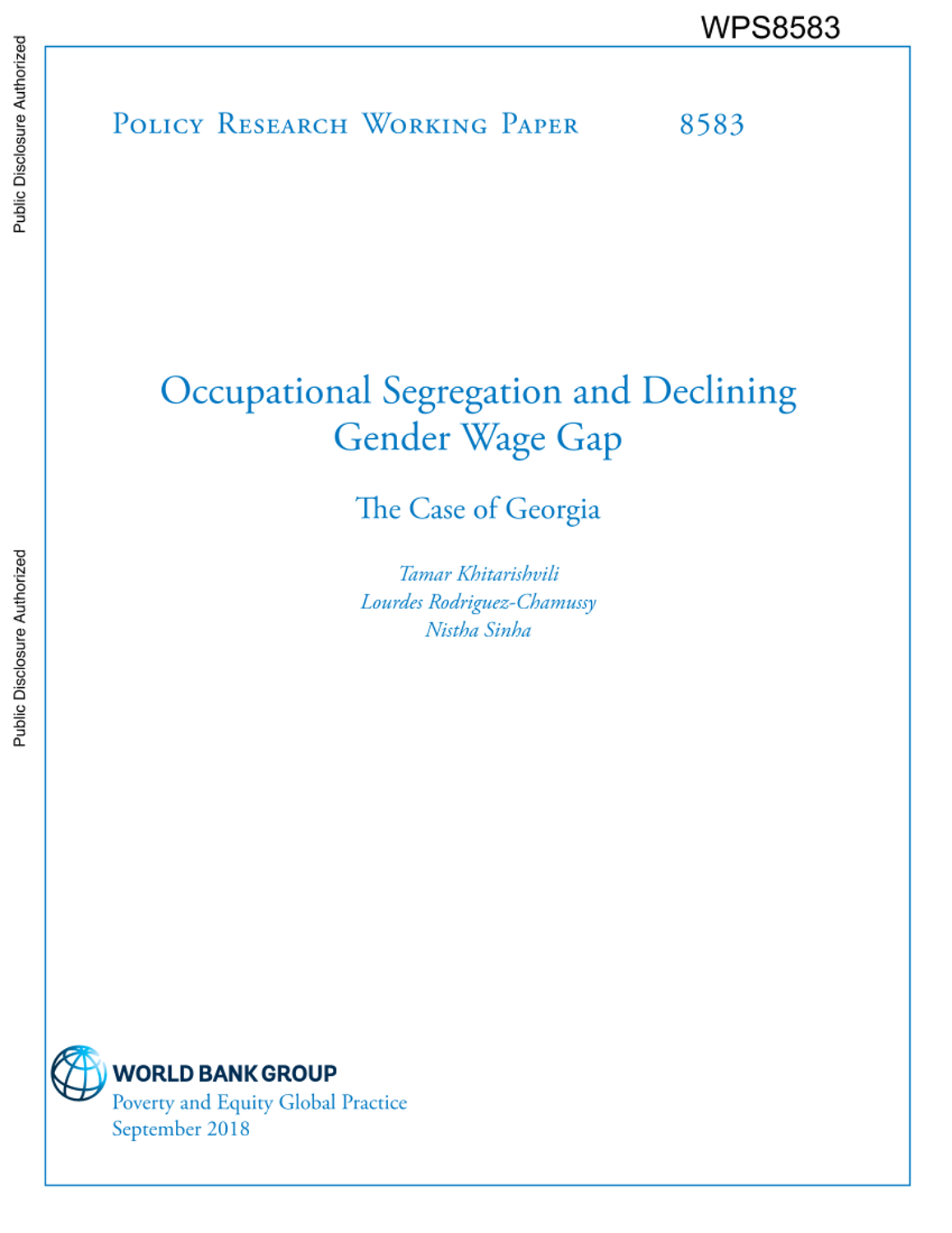연구보고서World Bank Policy Research Working Paper 7814
Will market competition trump gender discrimination in India ?
- 청구기호
- WPS 7814
- 발행사항
- Washington, D.C. : World Bank, 2016
- 형태사항
- 80 p. :. PDF file ;. 2,727 KB
- 바로가기
소장정보
| 위치 | 등록번호 | 청구기호 / 출력 | 상태 | 반납예정일 |
|---|---|---|---|---|
이용 가능 (1) | ||||
| E0002270 | 대출가능 | - | ||
이용 가능 (1)
- 등록번호
- E0002270
- 상태/반납예정일
- 대출가능
- -
- 위치/청구기호(출력)
책 소개
Empowering women to engage in productive employment is not only critical to achieving gender equality but also critical for economic growth and poverty reduction. This paper studies the pattern of female activity and gender segmentation in the Indian manufacturing and services sectors. Although the share of women entrepreneurs and employees is larger in manufacturing than in services, segmentation based on gender is pervasive in both sectors. Theory, dating back to Gary Becker, suggests that competitive reforms should reduce the extent of this segregation. In spite of competition-inducing reforms such as investment in Golden Quadrilateral (GQ) highways, trade liberalization and domestic reforms that India undertook since the turn of the century, this pattern of gender based segmentation has not subsided over the years. Specifically, investments in GQ upgrades are found to have null effects on female activity and gender segmentation. Although there is some evidence of a negative correlation between segmentation among male employees and industry level trade liberalization reforms, overall it had a very limited impact on female participation in labor force and in reducing segmentation among female employees. Finally, domestic reforms that dismantled product reservations for small-scale industries induced greater participation among women in economic activity and are correlated with a modest decline in segmentation among male employees. Segregation among female employees is positively associated with these reforms.

